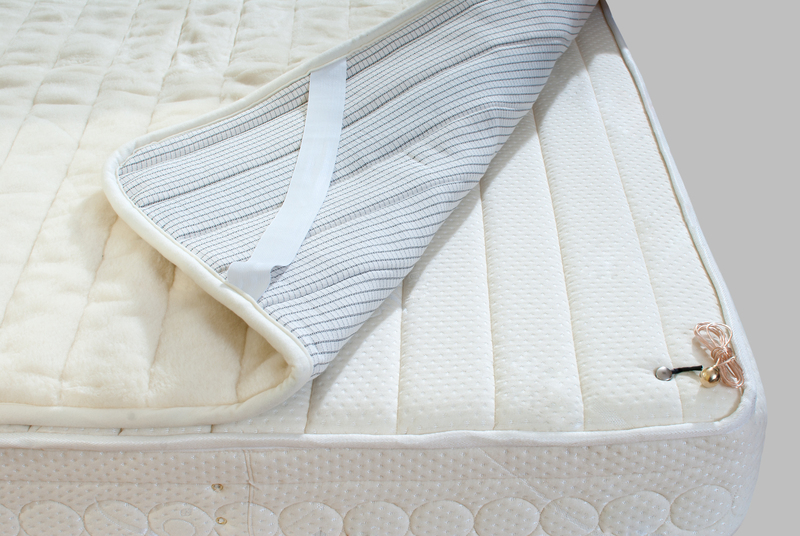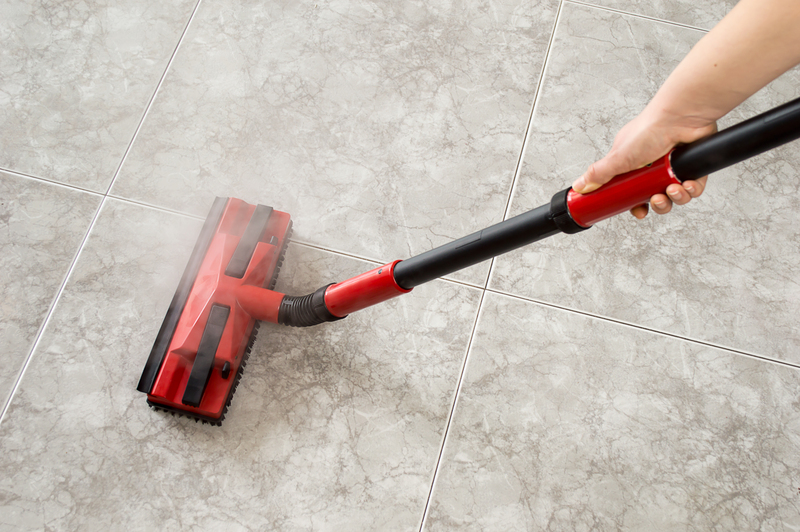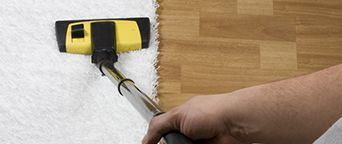Effective Techniques to Banish Musty Smells
Posted on 29/05/2025
Effective Techniques to Banish Musty Smells: A Comprehensive Guide
Musty smells, often described as damp, stale, or earthy odors, are not just unpleasant--they can also indicate underlying issues such as mold, mildew, or poor ventilation. Whether the source is your basement, closets, car, or entire home, learning effective ways to remove musty odors is essential for a fresh, healthy environment. In this guide, we'll explore expert-approved, practical, and natural techniques to banish musty smells once and for all.

What Causes Musty Smells?
To effectively eliminate musty odors, it's crucial to understand their origins. Common causes include:
- Mold and Mildew: These fungi thrive in damp, dark, and inadequately ventilated environments, emitting the characteristic musty odor.
- Poor Airflow: Lack of circulation allows moisture and pollutants to accumulate, leading to stale, musty air.
- Water Damage: Leaks and flooding can seep into walls, carpets, and furniture, causing lasting odors if not properly addressed.
- Humidity: High humidity fosters the growth of odor-causing bacteria and fungi.
- Dirty Fabrics: Unwashed clothes, curtains, or carpets can harbor musty scents over time.
Step-by-Step Guide: How to Banish Musty Smells from Every Space
1. Identify and Remove the Source
- Inspect for Leaks or Dampness: Check walls, ceilings, and floors for water stains or soft spots.
- Examine Fabrics: Look for mildew in upholstery, carpets, bedding, and clothing.
- Eliminate the Source: Address leaks, dry out wet areas, and remove moldy items to prevent recurring odors.
2. Increase Ventilation
Proper airflow is fundamental in combating mustiness:
- Open Windows and Doors: Let fresh air circulate daily, especially in areas prone to odors.
- Use Exhaust Fans: Employ kitchen, bathroom, or basement fans to expel moist, stale air.
- Consider Air Purifiers: These devices can trap and eliminate odor-causing particles, greatly improving indoor air quality.
3. Control Humidity Levels
Maintaining an optimal indoor humidity (ideally between 30-50%) is vital:
- Install a Dehumidifier: Effective for basements, bathrooms, and laundry rooms.
- Use Moisture Absorbers: Products like silica gel or activated charcoal naturally draw moisture from air.
- Dry Wet Areas Promptly: Attend to spills, leaks, and excess moisture immediately to prevent musty scents.
4. Clean Thoroughly With Natural and Chemical Solutions
- Vinegar: White vinegar is a natural deodorizer. Wipe surfaces or spritz into the air to neutralize musty odors.
- Baking Soda: Sprinkle on carpets, upholstery, or place bowls in rooms to absorb lingering smells.
- Hydrogen Peroxide: Diluted solution (3%) is excellent for removing mildew from solid surfaces.
- Enzyme Cleaners: These break down organic molecules responsible for odors.
- Commercial Odor Eliminators: Use products specifically designed to remove musty smells from the air and fabrics.
Room-by-Room Techniques to Banish Musty Smells
Main Living Areas
- Deep Clean Carpets and Rugs: Vacuum thoroughly, steam clean regularly, and sprinkle baking soda beforehand for added odor absorption.
- Furniture and Upholstery: Use fabric-safe cleansers or steam cleaners for sofas and armchairs. Leave cushions in the sun to air out.
- Air Out: Open windows and doors often, especially after rain or humid weather.
Basement
- Remove Damp Belongings: Store items in airtight, moisture-proof bins rather than cardboard boxes.
- Paint With Mildew-Resistant Paint: This can prevent future fungus growth and recurring musty smells.
- Regular Inspections: Look for condensation on pipes or windows and dry them promptly.
Bathrooms
- Proper Ventilation: Run an exhaust fan during and after showers.
- Clean Grout and Tile: Mold likes to lurk here--scrub with vinegar or a specialized bathroom cleaner.
- Wash Towels Frequently: Damp towels are a magnet for musty odors.
Closets and Wardrobes
- Declutter: Overcrowded closets restrict airflow--remove unused items.
- Use Cedar or Lavender: These natural options both absorb moisture and impart a pleasant scent.
- Install Louvered Doors: They boost air circulation, thwarting the buildup of stale air.
Cars
- Check for Leaks: Wet floor mats or seats can create lasting odors; dry them thoroughly and fix any leaks.
- Baking Soda or Charcoal: Place absorbent materials on the floor to neutralize smells.
- Clean Air Vents: Dust and moisture here can cause persistent musty odors--use vent cleaning sprays or compressed air.
Preventative Measures: Keeping Musty Smells Away for Good
1. Regular Maintenance
- Inspect frequently for leaks, mold, or dampness in susceptible areas like basements, attics, and bathrooms.
- Launder fabrics often--including curtains, upholstery, and rugs.
- Don't overwater indoor plants, as soggy soil can stink and encourage mold growth.
2. Foster Airflow
- Leave doors between rooms open when possible.
- Shuffle the placement of furniture to prevent "dead spots" where air doesn't circulate well.
- Use ceiling and oscillating fans to keep air moving.
3. Smart Storage
- Keep storage areas organized and dry; avoid cardboard when possible, opting for plastic containers that don't absorb moisture.
- Use moisture absorbers like silica gel, charcoal, or even rock salt in storage bins and small rooms.
Natural Remedies to Eliminate Musty Odors
Baking Soda
Baking soda is an excellent natural deodorizer. To remove musty odors:
- Sprinkle baking soda liberally over musty carpets, mattresses, or upholstery; leave for a few hours, then vacuum thoroughly.
- Place open boxes or bowls of baking soda in corners of rooms, closets, or cabinets that tend to smell stale.
White Vinegar
Vinegar's acidity neutralizes alkaline odors and kills mildew. Try these approaches:
- Fill a bowl with white vinegar and leave it in a musty room overnight.
- Mix a solution of 50/50 vinegar and water to wipe down surfaces where odors linger.
Activated Charcoal
Activated charcoal acts like a sponge for smells:
- Purchase charcoal odor absorbers or make your own sachets to place in closets, cars, and musty storage spaces.
Essential Oils
Some natural oils--like lavender, tea tree, eucalyptus, and lemon--are both pleasantly scented and antimicrobial:
- Add a few drops to a diffuser to freshen the air.
- Mix with water and spray onto musty fabrics or surfaces.
Coffee Grounds
Old coffee grounds can absorb odors and replace them with a subtle, comforting aroma:
- Fill an old sock or stocking with dry grounds and leave in musty drawers or closets.
Deep-Cleaning Solutions for Persistent Musty Smells
Professional Cleaning Services
- If home remedies haven't worked, consider bringing in expert cleaners who can deep-clean carpets, upholstery, and HVAC ducts.
Replacing Damaged Materials
- Severely water-damaged drywall, insulation, or subflooring may need to be replaced entirely to fully eradicate the odor source.
Mold Remediation
- If you suspect extensive mold growth, especially black mold, consult professionals. Attempting to remove large infestations yourself can be hazardous.
Health Risks of Ignoring Musty Smells
Beyond being a nuisance, persistent musty odors can signal a health hazard. Exposure to mold and mildew in your home has been linked to:
- Respiratory problems, including asthma and allergies
- Headaches and fatigue
- Sinus and throat irritation
- Sensitive reactions for children, the elderly, and immunocompromised individuals
Therefore, tackling musty smells promptly not only improves your home's atmosphere but also safeguards your family's well-being.
Frequently Asked Questions About Banish Musty Smells
- How can I quickly remove musty odors from a room?
Answer: Open windows, place bowls of vinegar or baking soda, and use a fan for rapid air circulation as you clean. - Are musty smells always a sign of mold?
Answer: Not always, but they often indicate moisture problems, so inspect for leaks or mold growth just in case. - How long does it take to completely banish musty odors?
Answer: Mild smells may disappear within a day or two using natural methods. Persistent odors related to mold or water damage may require weeks or professional help. - Is it safe to use bleach to eliminate musty odors?
Answer: Bleach is effective on non-porous surfaces, but always follow safety guidelines--never mix with other cleaners and ensure proper ventilation.

Conclusion: Keep Your Home Free from Musty Odors
Banishing musty smells doesn't have to be a never-ending struggle. By identifying the source, improving airflow, controlling moisture, and cleaning properly--plus using natural deodorizers and smart storage--you'll enjoy a home that smells as fresh as it feels. Routine maintenance and vigilance are key to preventing these unwanted aromas from returning.
Remember: Musty odors can signal an underlying issue. Address them promptly for a fragrant, healthy living environment!







